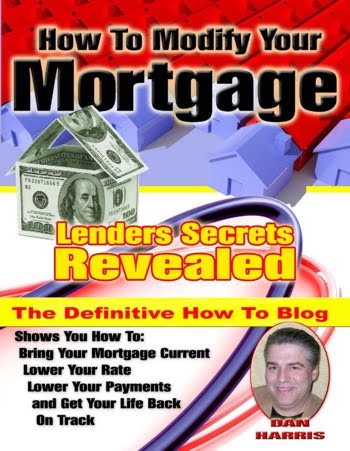It's Time To Learn How To Become A First Time Buyer In The Current Real Estate Market
The following article covers a topic that has generated much interest recently and moved to center stage--at least it seems that way. If you've been thinking about buying you first home and want to know more about it, here's your opportunity.
If you are considering buying your first home, you need to prepare yourself prior to jumping in.
If you are planning to get a mortgage with a co-borrower, make sure that whoever you are planning to buy with follows these same steps, as both your credit scores will be coming under scrutiny.
Remember, this is not the time to make changes, do not move bank accounts or change jobs as stability is attractive to lenders.
So what steps do you need to take?
CREDIT
The primary piece to the puzzle called getting a mortgage is your credit score. There are a number of things you can do to help boost your credit scores. Having a good credit score will give you a wider choice of mortgages and will enhance your chances of getting approved by a lender.
To build your credit, as soon as possible, you need to get your finances in order. Pay off any overdrafts, loans and pay down any balances on credit cards. Pay all your bills on time. And DO NOT miss a payment on anything. Even something as simple as your cell phone bill can negatively affect your credit rating.
A few helpful hints to boost your credit score:
- Get a copy of your credit report and review it for errors and items that need attention
- Keep all credit balances below 50% of the available credit limit
- Transfer balances to keep below 50% use of available credit
- Raise limits on existing accounts to keep below 50% of available credit
- Eliminate, payoff ALL collection accounts
- Do not start buying big ticket items such as cars, boats, etc.
ASSETS
If you do not already have a savings account, open one. You can then use this account to start building up savings for a down payment, closing costs, as well as the other expenses associated with buying a home, inspections, moving, new furniture, new appliances and more.
This will be a benefit to you in a couple of ways.
- First of all, the bigger the deposit you have, the better your options will be when it comes to getting a mortgage. Someone with a 10% deposit will have more mortgage options available to them than someone with a 5% deposit so save as much as you can.
- The second benefit of having a savings account is that it will look good on your loan application as it demonstrates responsible money management.
- Lastly, some banks require what they call reserves, that is, money in reserve to make payments in the case of financial emergencies such as job loss, or unexpected repairs. Having these reserves will make you more attractive to potential lenders.
The Current Real Estate Market
Getting into the market in the current environment offers both opportunities and challenges. Suffice it say that getting into a house in the current credit market is harder now than ever. With house prices having risen far quicker than inflation over the past few years, many first time buyers simply do not earn enough money to be able to buy a home.
There are some other options that might be available to you.
Friends & Family
First things first, you could ask your parents. Could they lend you money or borrow from the equity in their home to help you raise a down payment. This could be advanced to you in the form of a secured loan. Or would they be willing to act as a co-signer? A co-signer is where they agree to be liable for the mortgage should something go wrong.
Or, you could consider buying a place together with friends. If you are single, having two or three people buy a property means you can borrow a lot more money.
With these options, make certain that you draw up a proper legal agreement between yourselves as even the closest of relationships can go wrong.
Do Not Overextend Yourself Financially
No matter how desperate you are to own your own place, make sure that you do not over extend yourself with a mortgage. Affordability should always be a key consideration. After all, there is no sense in having your own home if you are too short of money to be able to spruce it up or furnish it!
So now you know a little bit about becoming a first time homebuyer. Even if you don't know everything, you've done something worthwhile: you've expanded your knowledge.
Dan Harris is a successful entrepreneur and freelance business writer.
Dan operates Harris Capital Management and Mobil Settlement, LLC in New York and can provide detailed information on New York Mortgages, New York Title Insurance Issues, New York City Mortgage Companies, New York Mortgage Rates and more.
Dan is also available for seminars and speaking engagements.
He can be reached at CashDan.com or MobilSettlement.com



